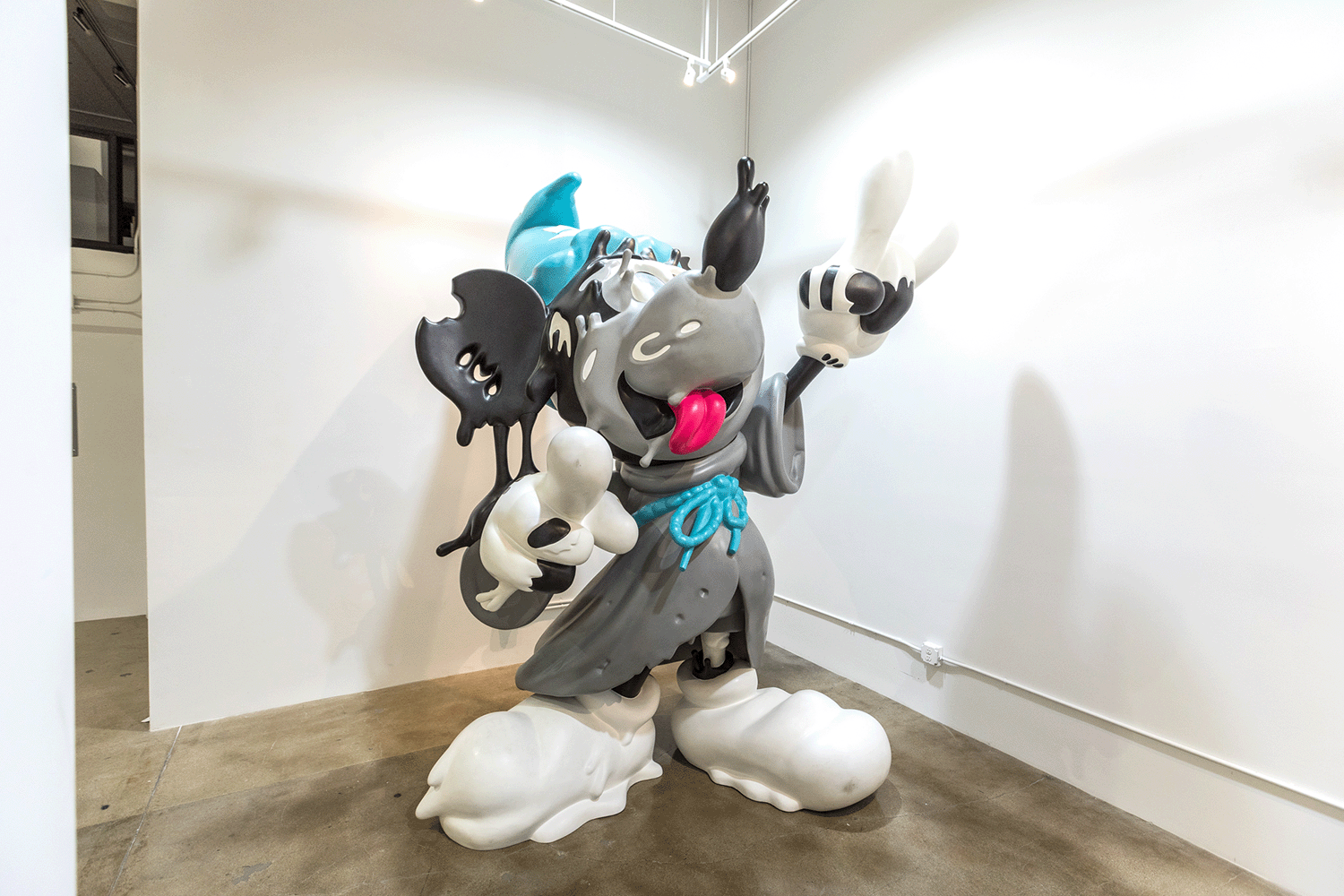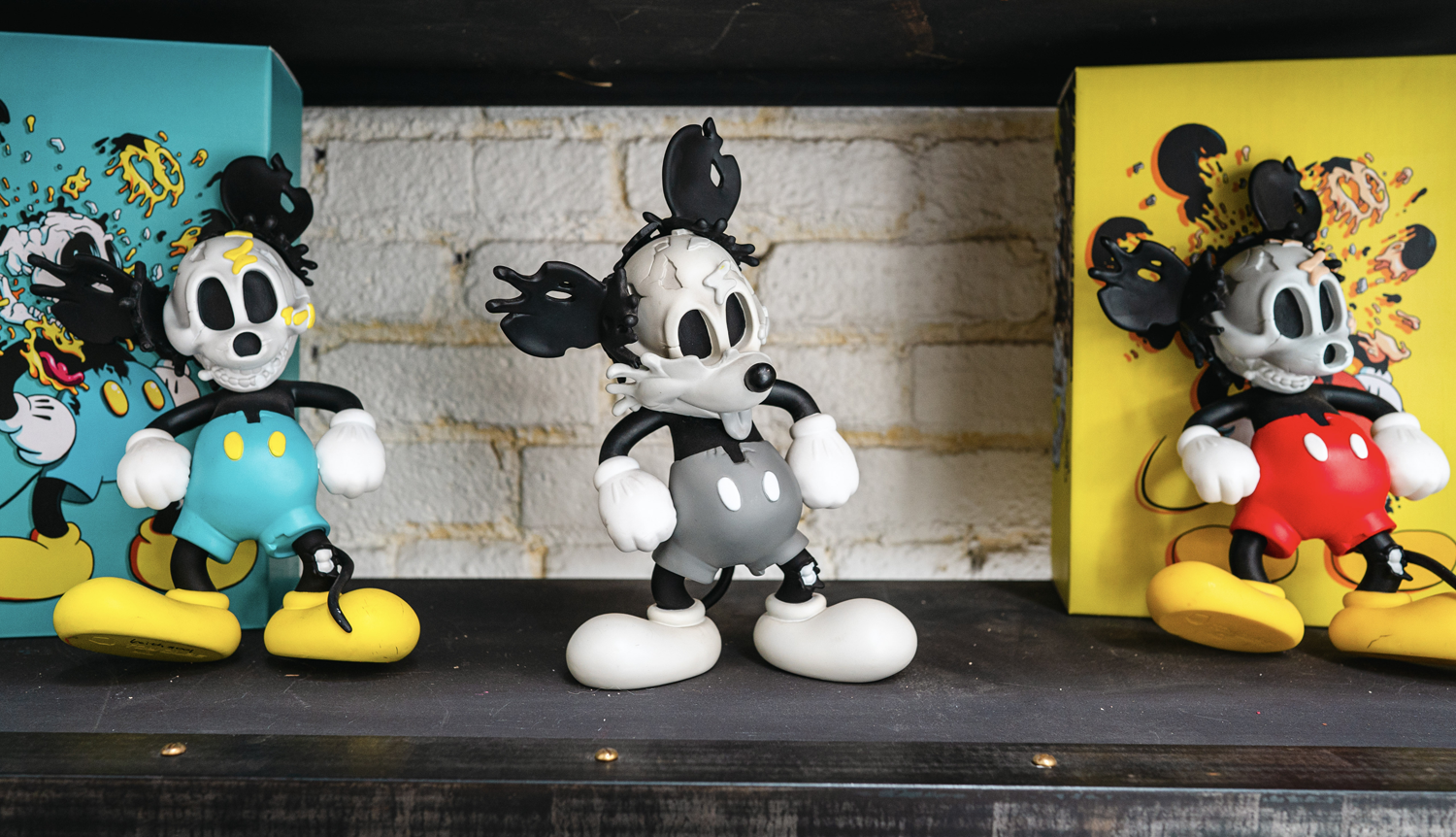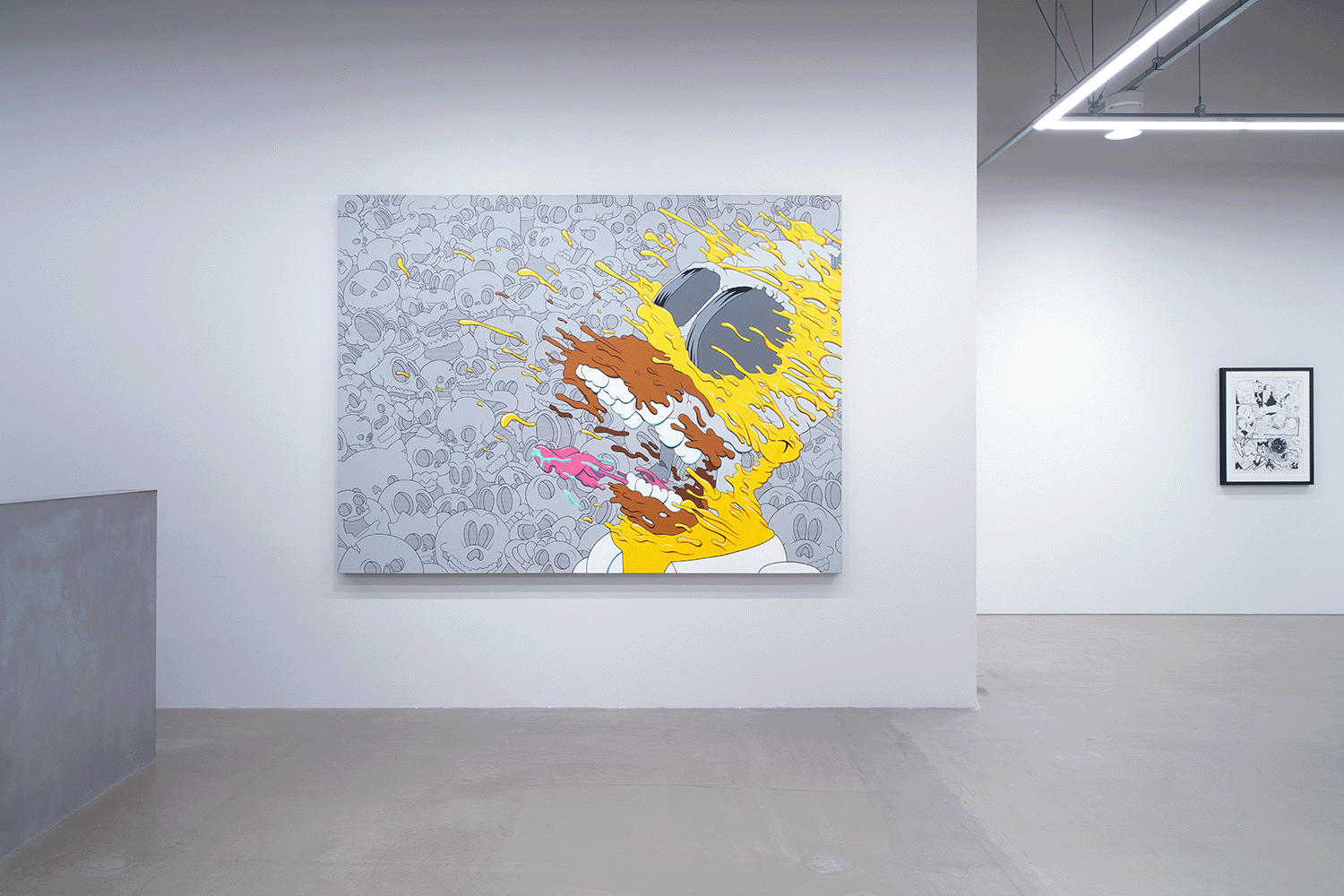A Substantial Conversation with Matt Gondek
Photo Credit: KT 1992
Matt Gondek is a Deconstructive Pop Artist, whose work is possessed with a raucous punk rock spirit, celebrating rebellion and destruction. With a vivid pop color palette and a disarmingly playful tone, he tears down and explodes cartoon idols, akin to slaughtering our modern-day gods with a disarming style. A self-taught artist and entrepreneur with a sharp business sense, Matt has carved an impressive niche and gained notoriety with his distinctive essence. He is also the host of Clean Break Podcast, an inspirational forum of influential artists sharing stories and insider-talks on how to succeed in the art world. Born in 1982, Matt’s creative voice is rooted in the 90s experience; as a true conduit of his generation and a potentially pointless search for meaning and purpose amidst the cruelties of life. He boasts sold out exhibitions in his home of Los Angeles as well as in New York, Paris, Tokyo, and Hong Kong. Celebrity clients include J Balvin and The Weeknd. Matt’s gloriously fierce meditations in mayhem are comical and visceral. There’s a slight hint of the uneasy mood in Goya’s Saturn Devouring His Son, hiding behind a cartoonish facade. His work aims to expose the aggression within our society and feverishly mocks our ridiculous flaws. The themes are accessible to the everyman, yet there’s deeper insight to be found within the motifs. There’s an unflinching dark humor in his thesis on human nature, constantly poking fun at our penchant for violence. His renditions dissect our core motivations to survive and our primal instincts. Growing up on MTV, Gondek opens a window to a culture seeking constant stimulation. Like a deranged train conductor, he gives no warning at the crossing, smashing into whatever is in his path. No one is safe but you might still make it out alive.
I had the pleasure of asking Matt what he finds wrong about the current politics of the art world, the one theme he explores that he gravitates to the most, and so much more.
UZOMAH: How does a sense of anti-authority make creating Art more authentic to you as an artist and person within society today?
MATT: I believe everyone desires uniqueness, but it becomes challenging, particularly as you 'grow up.' The cost of living on this planet is so high, and, at the end of the day, who has the time to nurture their individuality? As an artist, creating art is my rebellion against societal norms. Through my entire art practice, podcast series, and more, I encourage everyone to do the same.
Courtesy of the Azani Gallery
U: What do you find wrong with the current politics of the art world?
M: I don't know if this is a 'problem' per se, but the constant pressure to create marketable art wears on me at times. Every once in a while, I just want to make some weird stuff, but I have bills to pay and a studio staff to support, and we all need to eat.
On a more global level, I still believe that we, all of us, have a lot of work ahead in diversifying what's considered marketable in the art world.
U: Would having formal training as an artist have shifted or limited your artistic ability or outlook on creating art?
M: How can I truthfully answer this when I haven't had formal education? I can only see one side of the coin here. I can say that I do know artists with formal education, and their view of the business side of their art practice is narrow and stifled. It seems that the more higher education an artist has, the fewer opportunities they can see to create income for themselves.
I didn't grow up with money, so I made art to support myself. It's only after achieving financial stability that I began pondering the meaning of my work and why I'm doing it. I just wasn't afforded the luxury of thinking about those things in the beginning. I'm sure school would have taught me those things, but I'd probably still be broke if I went that route.
Photo Credit: KT 1992
U: What is one theme you explore that you gravitate to the most?
M: The tension between chaos and order in my work. The constant influx of stimulation in our culture.
U: Your art projects this rebellious lens toward pressing topics. How do you use Art to challenge the status quo?
M: Does it? At the end of the day, who am I to challenge anything, and why on earth should my opinion matter? I live in a bubble. I'm a wealthy, white, cisgender male. We've heard enough from people like me.
If anything, I'd prefer others to see me making my artwork, being successful, and thinking to themselves, 'Well, that’s nothing special. I can do it too,' and then go and do it for themselves.
U: What is something people would not know about you through your Art?
M: Artwork featuring cartoon characters gained popularity through artists like KAWS and was widely used in graffiti. This style was heavily embraced by hip-hop, streetwear, and related communities. When people meet me, they often assume I'll be into those trends, only to be disappointed to discover that I'm just a nerdy punk rock guy who loves video games.
I also collect magnets.
Photo Credit: Jonathan Jovel
U: If not Art, what?
M: In another reality, I’m the lead singer in a world-touring punk rock band.
U: What are some similarities and differences between creating music and creating art?
M: I think that starting out, creating music or fine art both comes from the need to express yourself and escape your reality. For me, the differences lie in how I mentally approach each. With music, it’s just done at this point for fun, whereas all fine artwork has much more weight, as I need to create marketable artwork to keep my business running.
U: What artist, writer, or musician would you like to collaborate with for a project or exhibit? And why?
M: Hmm, I don’t know. When I admire someone else’s work, I don’t want to interfere with it or add to it.
If anything, I’ve always wanted to create one of those couch gags they do at the beginning of each Simpsons episode.
Courtesy of the Anzai Gallery
U: What keeps you inspired to create?
M: I don’t think it’s inspiration; it’s just what I’ve been doing since I was born. I’ve been drawing and making things forever, and I’m incredibly lucky that I got to grow up and continue doing it. Honestly, I don’t know what else I’d be doing, but I’d be a lot less happy
Courtesy of the Anzai Gallery
U: How does Art, in general, that is inspired by politics and addresses political themes provide solutions?
M: Maybe not solutions per se.. maybe more awareness to opposing viewpoints, which I think is a good thing. If anything, it gets people talking.
For more information about Matt’s artwork, please visit his website. You can also follow him on Instagram.





